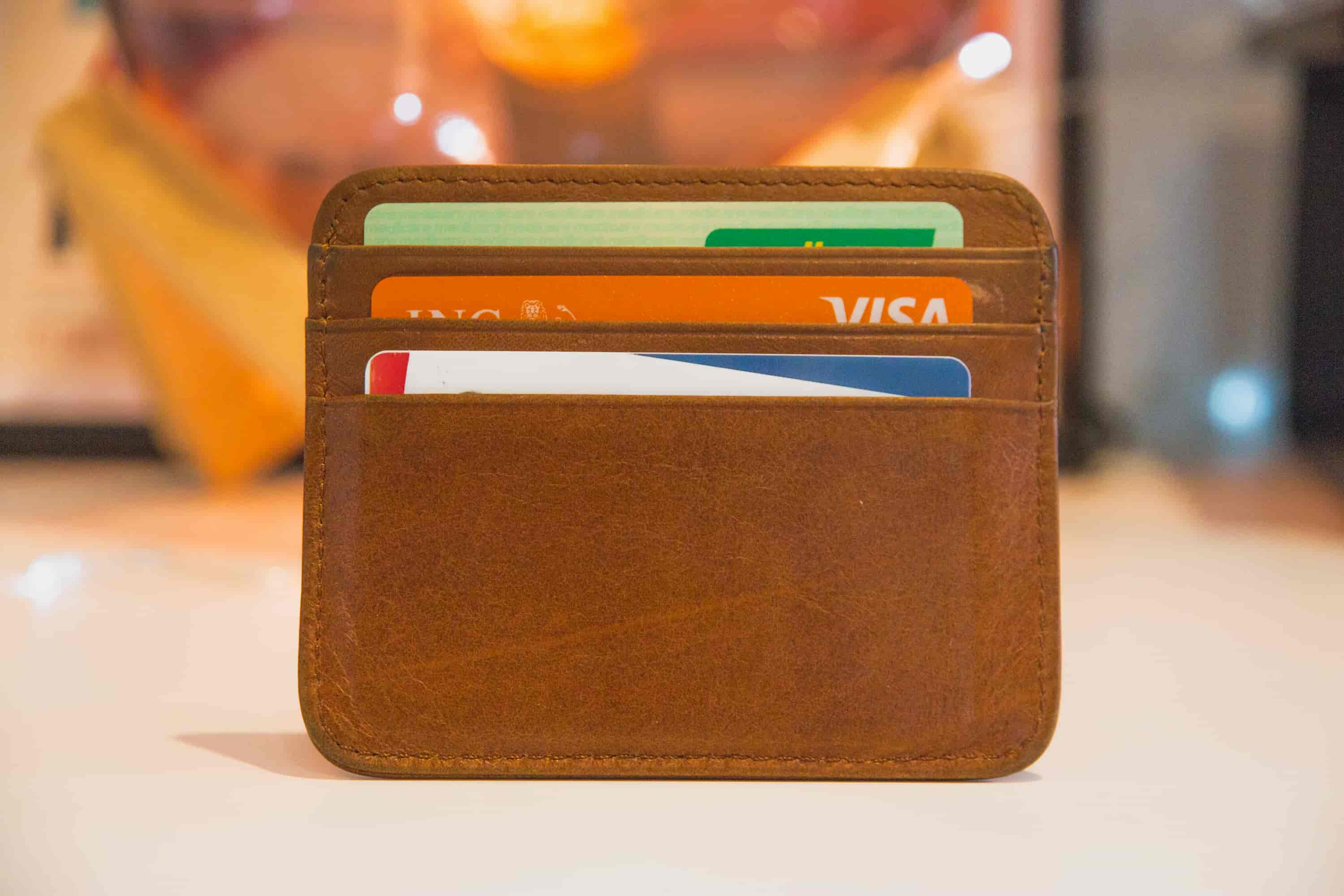

Finance
How To Build Your Credit At 17
Modified: March 10, 2024
Learn how to build your credit at 17 and take control of your financial future. Get practical tips and strategies to improve your credit score and secure your financial stability.
(Many of the links in this article redirect to a specific reviewed product. Your purchase of these products through affiliate links helps to generate commission for LiveWell, at no extra cost. Learn more)
Table of Contents
- Introduction
- Understanding Credit at 17
- Importance of Building Credit Early
- Knowing Your Credit Score
- Establishing a Bank Account
- Becoming an Authorized User on a Parent’s Credit Card
- Applying for a Secured Credit Card
- Making Payments on Time
- Keeping Credit Utilization Low
- Avoiding Credit Card Debt
- Monitoring Your Credit Report
- Building Credit with Small Loans or Installments
- Conclusion
Introduction
Building credit at a young age is essential for financial success in the future. As a 17-year-old, taking steps to establish and build your credit can provide you with numerous advantages down the line.
Credit is a measure of financial trustworthiness that lenders, landlords, and even potential employers use to evaluate your ability to handle debt and financial responsibilities. By building good credit early on, you can increase your chances of being approved for loans, renting an apartment, and even securing better job opportunities.
The process of building credit may seem challenging, especially when you’re just starting your financial journey. However, with the right knowledge and practice, you can take control of your credit and set yourself up for a brighter financial future.
This article will guide you through the process of building credit at 17, providing you with practical steps and tips to help you get started on the right foot. From understanding the importance of credit to establishing a positive credit history, we’ll cover everything you need to know to navigate the credit-building process effectively.
Remember, building credit is a marathon, not a sprint. It requires patience, responsibility, and a commitment to financial wellness. So, let’s dive in and explore the strategies that can help you build your credit at 17!
Understanding Credit at 17
Before diving into the process of building credit, it’s important to understand what credit really means. Credit is essentially a financial tool that allows individuals to borrow money or obtain goods and services with the promise of paying it back later. It is an essential aspect of the modern financial system.
At 17 years old, you may have limited experience with credit, but it’s never too early to start learning about it. There are several key components of credit that you should be aware of:
- Credit History: This is a record of your past borrowing and repayment behavior. It includes information about loans, credit cards, and other debts you have had, as well as your payment history. Building a positive credit history is crucial for establishing good credit.
- Credit Score: Your credit score is a numerical representation of your creditworthiness. It is calculated based on factors such as your payment history, amount of debt, length of credit history, and types of credit you have. A higher credit score indicates a lower credit risk, making lenders more likely to approve you for loans with favorable terms.
- Credit Report: This is a detailed document that contains information about your credit history, including your personal information, credit accounts, payment history, and more. You can obtain a free credit report once a year from each of the three major credit bureaus: Equifax, Experian, and TransUnion.
- Interest Rates: When you borrow money, lenders charge you interest for the privilege of using their funds. The interest rate is a percentage of the principal amount borrowed and is added to the total repayment amount. It’s important to understand the impact of interest rates on your ability to repay debts.
By understanding these key aspects of credit, you’ll be better equipped to navigate the process of building and managing your credit at 17. In the next sections, we’ll explore the steps you can take to start building your credit score and establishing a solid credit foundation.
Importance of Building Credit Early
Building credit early in life can have a significant impact on your financial future. Here are some key reasons why it is important to start building credit at 17:
1. Establishing a Solid Credit History: By starting to build credit early, you have more time to establish a positive credit history. Lenders and creditors look at the length of your credit history when evaluating your creditworthiness. The longer your credit history, the more reliable and trustworthy you appear.
2. Access to Better Loan Terms and Interest Rates: Building good credit allows you to qualify for loans with favorable terms and lower interest rates. This means you can save money over time and have more flexible repayment options.
3. Renting an Apartment or Home: Many landlords and rental agencies perform credit checks as part of their screening process. Having a good credit score can increase your chances of being approved for the apartment or home you desire, giving you more options and better rental terms.
4. Job Opportunities: Certain employers may review your credit history as part of the hiring process, particularly for positions that involve financial responsibilities or require a high level of trust. Having a solid credit history can enhance your employability and make you a more attractive candidate.
5. Building Financial Responsibility: Building credit at a young age teaches you valuable financial lessons. It encourages responsible financial behavior, such as paying bills on time and managing debt effectively. These habits can set you up for lifelong financial success.
6. Qualifying for Credit Cards and Other Financial Products: As you build credit, you’ll become eligible for credit cards and other financial products that can provide you with additional benefits, such as cashback rewards, travel perks, and low-interest rates. Having access to these tools can help you manage your finances and build a solid financial foundation.
Overall, building credit early establishes a strong financial foundation and opens doors to various opportunities in the future. It’s essential to start building credit at 17 to set yourself up for success and ensure a bright financial future.
Knowing Your Credit Score
Understanding your credit score is a crucial step in building your credit at 17. Your credit score is a three-digit number that represents your creditworthiness and is used by lenders to evaluate your creditworthiness. Here’s what you need to know:
1. Check Your Credit Score: Start by checking your credit score. While you may not have much credit history at 17, it’s still important to know where you stand. You can obtain a free copy of your credit report from each of the three major credit bureaus: Equifax, Experian, and TransUnion, once a year. There are also several online platforms and credit monitoring services that provide free access to your credit score.
2. Understand the Credit Score Range: Credit scores typically range from 300 to 850, with higher scores indicating better creditworthiness. A score above 700 is generally considered good, while scores above 800 are excellent. As a 17-year-old, your credit score may be limited or even nonexistent, but it’s important to monitor and work towards improving it over time.
3. Factors Affecting Your Credit Score: Your credit score is calculated based on several factors, including your payment history, credit utilization, length of credit history, types of credit, and new credit inquiries. It’s crucial to understand how these factors impact your score to take the necessary steps to maintain or improve it.
4. Regularly Monitor Your Credit: Monitoring your credit is vital for identifying any errors or potential fraudulent activity. Regularly reviewing your credit report helps you ensure that all the information is accurate and up-to-date. If you notice any discrepancies or errors, you can take steps to dispute and correct them.
5. Establish Goals for Your Credit Score: Setting goals for your credit score can motivate you to take the necessary actions to improve it. Whether it’s aiming for a certain score range or working towards a specific financial milestone, having goals can help you stay focused and committed to building your credit.
By knowing your credit score and understanding how it’s calculated, you can better track your progress and make informed decisions when it comes to managing your credit. As you continue to build your credit at 17, monitoring your credit score regularly will be an essential part of your financial journey.
Establishing a Bank Account
One of the first steps to building credit at 17 is to establish a bank account. Having a bank account not only provides a safe place to store your money but also plays a crucial role in building your financial foundation. Here’s what you need to know:
1. Choose the Right Bank: Research different banks and compare their account options and fees. Look for a bank that offers suitable services for your needs, such as low or no monthly fees, a convenient ATM network, and online banking capabilities.
2. Open a Checking and Savings Account: Most banks offer both checking and savings accounts. A checking account allows you to deposit and withdraw funds for everyday expenses, while a savings account is ideal for setting aside money for emergencies or long-term goals. Opening both types of accounts can help you develop healthy money management habits.
3. Understand Bank Fees and Policies: Be aware of any fees associated with your bank accounts, such as monthly maintenance fees, ATM fees, or overdraft fees. Read the bank’s terms and conditions to ensure you understand their policies regarding account minimums, transaction limits, and other important details.
4. Build a Relationship with Your Bank: Regularly visit your bank and establish a relationship with the bank staff. This can be helpful when you have questions or need assistance in the future. Building a positive relationship with your bank can also open doors to other financial opportunities down the line.
5. Set Up Direct Deposit: If you have a part-time job or earn income from other sources, consider setting up direct deposit to have your funds automatically deposited into your bank account. This ensures that your funds are readily accessible and can help you establish a consistent payment history.
6. Practice Responsible Banking Habits: Maintain a positive banking record by regularly monitoring your account, keeping track of your transactions, and avoiding overdrawing your account. Responsible banking habits contribute to your overall financial well-being and demonstrate your ability to manage money responsibly, which can positively impact your creditworthiness.
By establishing a bank account and practicing responsible banking habits, you not only gain a secure place to manage your finances but also lay the groundwork for building credit at 17. A bank account is a fundamental stepping-stone in your journey towards developing a strong financial foundation.
Becoming an Authorized User on a Parent’s Credit Card
Becoming an authorized user on a parent’s credit card is an effective strategy for building credit at 17. As an authorized user, you will have the ability to make purchases using the card, but the primary responsibility for payment lies with the account owner. Here’s how this arrangement can help you build credit:
1. Piggyback on Established Credit: By being added as an authorized user on a parent’s credit card, you can benefit from their established credit history. The positive payment history and low credit utilization of the primary cardholder can reflect positively on your credit report, boosting your credit score.
2. Learn Responsible Credit Card Usage: Being an authorized user allows you to start learning about responsible credit card use from a young age. You can observe how your parent manages their credit card, makes payments on time, and keeps their credit utilization low. This firsthand exposure can help you develop good financial habits for when you are ready to have your own credit card.
3. Communicate Expectations and Boundaries: Before becoming an authorized user, have an open conversation with your parent about expectations and boundaries. Discuss how the credit card will be used, who will be responsible for making payments, and any spending limits in place. Clear communication can help avoid misunderstandings and potential financial issues.
4. Monitor Credit Activity Regularly: Even though you are not responsible for the payments, it is crucial to regularly monitor the credit card activity. Keep an eye on the balance, ensure payments are being made on time, and verify that there are no unauthorized charges. This proactive approach can help maintain the positive impact on your credit score.
5. Gradually Transition to Your Own Credit Card: As you gain confidence and financial stability, you can consider transitioning to having your own credit card. This step will allow you to establish your own credit history and take full responsibility for your credit card usage. However, it’s important to remember that building credit takes time, so proceed with caution and only when you feel ready.
Note: It is essential to establish a high level of trust and responsibility with your parent before becoming an authorized user on their credit card. Both parties should fully understand the implications and obligations involved in this arrangement.
By becoming an authorized user on a parent’s credit card, you can benefit from their positive credit history while learning valuable lessons about responsible credit card usage. This opportunity sets the stage for a successful credit journey as you build a solid foundation for your own credit history in the future.
Applying for a Secured Credit Card
Applying for a secured credit card is a smart move when it comes to building credit at 17. A secured credit card requires a cash deposit as collateral, which serves as a security measure for the lender. Here’s why a secured credit card can be beneficial for establishing and building your credit:
1. Easier Approval Process: Secured credit cards are designed for individuals with limited or no credit history, making them more accessible to young individuals like yourself. Since the cash deposit acts as collateral, the issuer is more likely to approve your application even without an established credit history.
2. Establishing Credit History: Using a secured credit card responsibly helps you establish a credit history. By consistently making timely payments and keeping your credit utilization low, you can build a positive track record that will reflect on your credit report.
3. Gradual Credit Limit Increases: Secured credit cards often start with a lower credit limit, which can help you learn responsible credit management at a manageable level. Over time, as you demonstrate responsible card usage, the issuer may increase your credit limit, allowing for more flexibility with your spending.
4. Credit Building tool: The purpose of a secured credit card is to build credit, so the issuer typically reports your payment history and credit utilization to the credit bureaus. This means that as long as you use the card responsibly, your positive habits will be reflected on your credit report, ultimately improving your credit score.
5. Learn Financial Discipline: Using a secured credit card requires discipline and responsible financial management. It helps you understand the importance of budgeting, making on-time payments, and keeping your credit utilization low. These skills are invaluable as you progress towards managing more significant financial responsibilities in the future.
6. Transition to Unsecured Credit Cards: By successfully managing your secured credit card and establishing a positive credit history, you can eventually apply for unsecured credit cards. These cards do not require a cash deposit and offer higher credit limits and additional benefits. Remember, patience and good credit habits are crucial for this transition.
When applying for a secured credit card, it’s important to compare different options and choose one with fair terms, reasonable fees, and a reputable issuer. Make sure to read the terms and conditions carefully and understand the repayment requirements.
Using a secured credit card responsibly and consistently is an excellent strategy for building credit at 17 and setting yourself up for future financial success. It can help you establish a positive credit history, develop good financial habits, and gain the necessary experience to manage credit responsibly.
Making Payments on Time
When it comes to building credit at 17, one of the most crucial factors is making payments on time. Payment history has a significant impact on your credit score, and consistently making timely payments demonstrates your financial responsibility. Here’s why making payments on time is so important:
1. Positive Impact on Credit Score: Your payment history is a key factor in determining your creditworthiness. Making payments on time and in full shows lenders that you are reliable and responsible with credit. This positive payment history can boost your credit score and improve your chances of being approved for future loans.
2. Avoiding Late Payment Fees: Making late payments can result in hefty fees and penalties, which can add up over time. By ensuring that your payments are made by the due dates, you can avoid unnecessary expenses and save money.
3. Building Trust with Creditors: Consistently paying your bills on time helps build trust and credibility with lenders and creditors. This establishes a positive relationship with them, making it easier to access credit in the future and potentially negotiate better terms.
4. Preventing Negative Marks on Your Credit Report: Late payments can have a negative impact on your credit report and remain on your record for up to seven years. These negative marks can make it more challenging to secure future credit or loans and may result in higher interest rates.
5. Developing Responsible Financial Habits: Making payments on time teaches you vital financial discipline, such as prioritizing payments, budgeting, and managing your cash flow effectively. These skills are invaluable as you navigate through financial responsibilities in adulthood.
6. Utilizing Automatic Payment Options: Setting up automatic payments can help ensure that you never miss a payment. By linking your bank account or credit card to your bills and loans, the payments are automatically deducted on the due date. This provides convenience and peace of mind, knowing that your payments are taken care of.
7. Setting Reminders and Creating a Payment Schedule: If automatic payments are not an option, set reminders for due dates or create a payment schedule to stay organized. Utilize smartphone apps or calendar reminders to keep track of your payment obligations.
Maintaining a consistent track record of making payments on time is a fundamental step in building credit at 17. It demonstrates financial responsibility and lays the groundwork for a positive credit history that will benefit you in the long run.
Keeping Credit Utilization Low
Another important aspect of building credit at 17 is to keep your credit utilization low. Credit utilization refers to the percentage of your available credit that you are currently using. Keeping this ratio low shows responsible credit management and can have a positive impact on your credit score. Here’s why keeping credit utilization low is crucial:
1. Impact on Credit Score: Credit utilization is a significant factor in determining your credit score. High credit utilization, above 30% of your available credit, can negatively impact your score. By keeping your utilization low, ideally below 30%, you can maintain a healthy credit score.
2. Demonstrating Responsible Credit Management: Keeping your credit utilization low demonstrates responsible financial behavior to lenders and creditors. It shows that you are managing your available credit responsibly and only using a fraction of what’s available to you.
3. Easier Access to Additional Credit: A low credit utilization ratio can make it easier for you to access additional credit in the future. Lenders often view borrowers with low utilization ratios as less of a credit risk and may be more willing to extend credit to them.
4. Avoiding Overspending and Debt: By keeping your credit utilization ratio low, you can avoid accumulating excessive debt. It encourages you to live within your means and not rely too heavily on credit to make purchases.
5. Regularly Monitoring Your Credit Utilization: It’s important to regularly monitor your credit utilization to ensure it stays within a healthy range. Review your credit card statements and track your spending to keep your utilization ratio low.
6. Paying Off Balances in Full: Aim to pay off your credit card balances in full each month rather than carrying a balance. This not only keeps your credit utilization low but also helps you avoid paying interest charges.
7. Increasing Available Credit: Another way to keep your credit utilization low is to increase your available credit. This can be done by requesting a credit limit increase from your credit card issuer or applying for additional credit cards. However, be cautious and only take on additional credit if you can manage it responsibly.
By keeping your credit utilization low, you demonstrate responsible credit management and improve your creditworthiness. It’s important to develop good spending habits, regularly monitor your credit utilization, and make conscious decisions to keep your utilization ratio low as you build your credit at 17.
Avoiding Credit Card Debt
As you build credit at 17, it’s crucial to avoid falling into credit card debt. While credit cards can be useful tools for building credit, misusing them can lead to financial trouble and negatively impact your credit score. Here are some important tips to avoid credit card debt:
1. Spend Within Your Means: Only charge purchases to your credit card that you can afford to pay off in full when the bill arrives. Avoid the temptation to spend beyond your means and rely on credit to cover expenses that are beyond your current financial capacity.
2. Create a Budget: Establish and stick to a realistic budget to manage your finances effectively. Include credit card payments in your budget and allocate funds to pay off your credit card balance in full each month.
3. Pay in Full and on Time: Always strive to pay your credit card bill in full and by the due date. Only paying the minimum payment can result in high interest charges and a never-ending cycle of debt. Late payments can also lead to late fees and negatively impact your credit score.
4. Limit the Number of Credit Cards: Having multiple credit cards can increase the temptation to overspend and accumulate debt. Start with a small number of cards and only apply for additional ones when necessary.
5. Track Your Spending: Keep an eye on your credit card activity and regularly review your statements. This helps you stay aware of your spending patterns and identify any areas where you may be overspending.
6. Avoid Cash Advances: Cash advances from credit cards often come with high-interest rates and additional fees. It’s best to avoid using your credit card for cash advances unless it’s absolutely necessary.
7. Seek Financial Education: Take the initiative to learn about personal finance and credit management. Understand how interest rates work, how to read credit card statements, and how to make informed financial decisions. The more knowledge you have, the better equipped you will be to manage your credit responsibly.
Remember, developing healthy financial habits early on will set you up for long-term success. By avoiding credit card debt and using your credit cards responsibly, you can build good credit while maintaining control over your finances.
Monitoring Your Credit Report
Monitoring your credit report is a crucial habit when building credit at 17. Your credit report contains valuable information about your credit history and serves as the basis for your credit score. Here’s why monitoring your credit report is important:
1. Identifying Errors and Inaccurate Information: Errors can occur on credit reports, such as incorrect personal information or accounts that don’t belong to you. Monitoring your credit report allows you to spot and dispute any inaccuracies promptly. Reporting and correcting these errors can help improve your credit score.
2. Detecting Fraud and Identity Theft: Regularly reviewing your credit report helps you detect any signs of fraud or identity theft. Unfamiliar accounts or inquiries can be red flags for fraudulent activity. By catching these issues early on, you can take immediate steps to protect your identity and prevent further damage to your credit.
3. Tracking Your Progress: Monitoring your credit report allows you to track your progress as you build credit over time. You can see how your credit history evolves, review your payment history, and monitor changes to your credit score. This helps you stay motivated and focused on your credit-building goals.
4. Ensuring Accuracy of Reported Payments and Balances: Verifying that your reported payments and credit card balances are accurately reflected on your credit report is important. Mistakes or omissions in this information can impact your credit score. By monitoring your credit report, you can ensure that everything is reported correctly.
5. Taking Steps to Improve Your Credit: Regularly monitoring your credit report allows you to identify areas in which you can improve your credit. Whether it’s reducing your credit utilization, paying off debts, or addressing negative marks, you can take specific actions to enhance your creditworthiness.
6. Free Annual Credit Reports: You are entitled to a free annual credit report from each of the three major credit bureaus: Equifax, Experian, and TransUnion. Take advantage of this opportunity to review your credit reports regularly and keep tabs on your credit history.
7. Utilizing Credit Monitoring Services: Consider using credit monitoring services that provide real-time updates and notifications whenever there are changes to your credit report. These services can help you stay on top of any potential issues and provide added peace of mind.
By diligently monitoring your credit report, you can stay informed about your credit history, detect inaccuracies or fraudulent activities, and take proactive steps to improve your credit over time. This commitment to monitoring will play an integral role in building and maintaining a healthy credit profile.
Building Credit with Small Loans or Installments
Building credit at 17 can also involve utilizing small loans or installments to establish a positive credit history. While credit cards are one way to build credit, adding diversity to your credit profile by incorporating small loans or installments can further enhance your creditworthiness. Here’s how it works:
1. Consider a Small Personal Loan: Some lenders offer small personal loans specifically designed for individuals with limited credit history. These loans may have lower borrowing limits and shorter repayment terms, making them more manageable for someone just starting to build credit.
2. Apply for a Credit Builder Loan: Credit builder loans are specifically designed to help individuals build or improve their credit. These loans typically hold the loan amount in a savings account or certificate of deposit (CD) while you make regular payments. Once the loan term ends, you receive the funds plus interest. These payments are reported to the credit bureaus, helping you build credit history.
3. Utilize Secured Loans: Similar to secured credit cards, some lenders offer secured loans where you provide collateral, such as a savings account or personal asset, to secure the loan. The lender reports your payment history to the credit bureaus, helping you establish a positive credit history.
4. Explore Credit-Building Installment Plans: Some service providers offer credit-building installment plans that allow you to make purchases and pay them off in small, regular installments. These installment payments are reported to the credit bureaus and help demonstrate your ability to manage and repay debt responsibly.
5. Make Timely Payments: As with any credit-building endeavor, it’s crucial to make all your loan or installment payments on time. Timely payments reflect positively on your credit report and show lenders that you are a responsible borrower.
6. Keep Your Debt-to-Income Ratio Low: When taking on small loans or installments, it’s essential to manage your overall debt-to-income ratio. Aim to keep your monthly debt payments, including credit cards and other loans, at a reasonable percentage of your income to avoid overextending yourself financially.
7. Stay Within Your Budget: Before taking on any small loans or installment plans, assess your budget and ensure you can comfortably afford the monthly payments. Borrowing more than you can repay can lead to financial difficulties and negatively impact your credit.
Building credit with small loans or installments adds diversity to your credit profile and demonstrates your ability to manage different types of credit responsibly. By making regular payments and keeping your debt utilization low, you can establish a positive credit history and strengthen your overall creditworthiness.
Conclusion
Building credit at 17 is a critical step towards securing a strong financial foundation for the future. By understanding credit and taking proactive steps, you can establish a positive credit history and pave the way for financial success. Here’s a recap of the key points discussed:
First, it’s essential to understand credit and its components, including credit history, credit score, and credit report. This knowledge empowers you to navigate the credit-building process effectively.
Next, establishing a bank account provides a secure place to manage your finances and is a fundamental step in building credit. Opening both a checking and savings account helps develop responsible money management habits.
Becoming an authorized user on a parent’s credit card allows you to benefit from their positive credit history and learn about responsible credit card usage. This experience can set the stage for your own credit card ownership in the future.
Applying for a secured credit card is a practical option for building credit at 17, as it offers easier approval and enables you to establish your credit history with responsible card usage.
Making payments on time is crucial for maintaining a positive credit history. Responsible credit management involves paying bills promptly, keeping credit utilization low, and avoiding credit card debt.
Monitoring your credit report regularly helps identify errors, detect fraud, and track your progress in building credit. Taking steps to correct inaccuracies and protect your credit is essential.
By utilizing small loans or installments, you can further diversify your credit profile and demonstrate your ability to manage different types of credit responsibly.
In conclusion, building credit at 17 is a journey that requires knowledge, discipline, and responsible financial behavior. By following these steps and making smart financial decisions, you can establish a solid credit foundation that will serve you well in the years to come. Remember, building credit takes time, so be patient and stay committed to your credit-building goals. With the right approach, you can set yourself up for a bright financial future full of opportunities.














